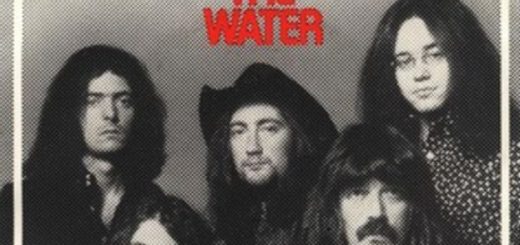Lazy by Deep Purple Lyrics Meaning – Unveiling the Riddle of Indolence in Classic Rock
Lyrics
You’re lazy, you just stay in bed
You don’t want no money, you don’t want no bread
If you’re drowning you don’t clutch no straw, no, no
If you’re drowning you don’t clutch no straw
You don’t want to live, you don’t want to cry no more
Well my trying ain’t done no good
I said, my trying ain’t done no good
You don’t make no effort, no, not like you should
Lazy, you just stay in bed
Lazy, you just stay in bed
You don’t want no money, you don’t want no bread
In the annals of rock, few songs have managed to encapsulate the essence of idleness with such verve as Deep Purple’s ‘Lazy’. On the surface, the lyrics resonate with the overt simplicity of their titular characterization, but a deeper audit reveals layers of complexity not immediately apparent. This classic track, oozing with blues and rock sensibilities, invites listeners to contemplate the psyche of a person steadfast in their refusal to engage with the exigencies of life.
As we sift through the melodies and words of ‘Lazy’, one cannot help but muse over the juxtaposition of its energetic composition against the lassitude the lyrics connote. In doing so, the song becomes a paradoxical anthem, beckoning us to unravel the true meaning beyond its apparently straightforward chastisement of indolence.
A Sonic Contradiction: Energetic Blues Wrapped in Lethargy
The genius of ‘Lazy’ is in its ability to exude vitality through Ian Paice’s tenacious drumming and Jon Lord’s legendary organ solos while crooning about the utter lack of motivation. The dichotomy here is a masterful stroke, forcing the listener to grapple with the high-octane performance that seems at odds with the lethargy of the words. This musical paradox might just be a conscious commentary on the human condition—how even the most dormant of us have a latent vivacity waiting to be roused.
Richie Blackmore’s guitar work further accentuates this theme, with riffs that both cut through the air like a declaration of intensity and meander like the musings of a languid afternoon. It is as though the music itself is in a constant battle with the apathy that the lyrics narrate, creating an auditory illusion of movement against the grain of inertia.
Probing the Psyche of Apathy: The Hidden Meaning of ‘Lazy’
What if ‘Lazy’ isn’t just a critical swipe at a generation or an individual’s reluctance to engage, but a spotlight on the despair that often lies behind inaction? Consider the lines, ‘If you’re drowning you don’t clutch no straw.’ Here, the saying which typically epitomizes desperation is inverted, suggesting a deeper resignation, a surrender not just to laziness, but to the futility of existence itself.
The refusal to ‘make no effort, no, not like you should’ could be interpreted as a metaphor for depression or a profound disenchantment with societal expectations. The song tacitly nudges the audience to an epiphany—that what’s often dismissed as sloth could be a symptom of a more profound existential malaise that merits empathy rather than scorn.
The Deliberate Rebellion: Refusing the Breadwinning Chase
A closer dissection of the line ‘You don’t want no money, you don’t want no bread’ posits an active choice against material pursuits. Deep Purple might be cleverly dissenting against the capitalistic rat race and the compulsion to derive worth from wealth and labor. It’s a subtle nod to anti-establishment counterculture, shared by many of their contemporaries, clothed in what seems to be critique.
In the rejection of ‘money’ and ‘bread’, there’s a powerful assertion of autonomy. The song’s character may be illustrating a conscious detachment from societal norms and the pressures to perpetually perform and produce, pointing listeners towards a critique of the work ethic that drives modern life.
An Ode to the Underdog: The Song’s Embrace of the Nonconformist
By repeatedly highlighting ‘you just stay in bed,’ the song might initially sound derogatory, yet there’s an undercurrent of respect for the nonconformist who opts out of prescribed duties. In this, ‘Lazy’ could be read as an ode to the underdog, the misfit who doesn’t adhere to the traditional archetype of the active participant in life’s drama.
In celebrating—or at least, acknowledging—the one at odds with society’s pace, Deep Purple weaves a complex narrative. They reject the notion of the lazy one as merely a societal parasite, instead portraying as an individualist who defies the vapid hustle and honors their genuine state of being.
Memorable Lines That Echo Universal Sentiments
Beyond the specific interpretation of lines, ‘Lazy’ encapsulates sentiments that resonate universally. The lyric ‘Well my trying ain’t done no good’ strikes a chord with anyone who has ever felt like their efforts have been in vain—an acknowledgment that sometimes, despite best intentions and actions, change is elusive.
This sense of futility is not just personal but can be extrapolated to broader societal challenges. When efforts seem not to alter the status quo, a kind of collective ennui can set in—one that ‘Lazy’ captures with poetic precision and musical prowess. It’s this universality that allows the song to transcend time, its message as pertinent today as it was when Ritchie Blackmore laid down its quintessential guitar licks.








